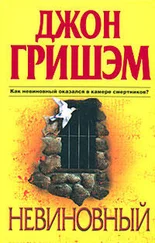Murray looked at his page almost daily, but the brokenhearted messages from his fans were often too much to read. Emotions were simply too raw. He would swear off, leave the page, but return the next day for a quick look.
He went through Sooley’s backpack and rifled through a pile of notebooks and sports magazines. In a daily planner that had been rarely used, Murray found some notes that were intriguing. Stapled to one page was a business card for a company called Aegis Partners and an “Advisor” named Gary Gaston. He opened his own laptop and a quick search revealed little about the outfit. It was based in Bethesda and advertised itself as a player in the vague field of “international security.” On the back of the business card, Gaston had evidently scribbled his cell phone number. Murray called it and a voice curtly announced, “Gaston.”
Murray explained who he was and what he was doing and was surprised when Gaston said, “Oh, I knew Sooley pretty well. Even met him once, just a few days ago when you guys were in D.C. looking for an apartment.”
Murray was surprised and said, “I didn’t know that.”
“You were taking a nap and I went to your hotel. The Hyatt. Met Sooley in the bar and we hit it off.”
“Mind if I ask why you were talking to Sooley?”
“Well, first, I’m very sorry about what has happened. It’s quite a shock and I’m sure you guys are reeling right now.”
“We are. I was Sooley’s closest friend and I never heard him mention you or your company.”
“We’re very private, that’s our business. We do a lot of work in Africa, complicated stuff I can’t go into, but from time to time we’re hired to extricate people and bring them here.”
“Extricate?”
“That’s it. Sooley was convinced he was about to make some money, I guess he was right about that, and he wanted to hire us to get his family out of the refugee camp in Uganda.”
“And how do you do that?”
“Look, I prefer to avoid the phone as much as possible. Same for email and texts. Everything leaves a trail.”
“Okay. I noticed that your firm’s website doesn’t say much about your firm.”
“We don’t advertise, okay? Sooley found us through a nonprofit that works with refugees.”
“He knew them all, didn’t he?”
“I guess he did.”
“So, you can’t tell me anything?”
“Sure I can, but not over the phone. If you want a cup of coffee, I’m happy to explain things.”
“When can we meet?”
Gaston put him on hold for a moment, then said, “Day after tomorrow work for you?”
“Sure. When and where?”
“I don’t know. Look, I’d like to help. I really liked the kid, watched the draft and all, love college basketball, and I was excited about doing the job. I have some time. Let’s meet halfway and have lunch.”
“When and where?”
“Looks like Charlottesville is three hours for you, about the same for me. My wife is from the area, so let’s meet there. Day after tomorrow.”
Over dinner, Murray briefed his parents, who, given his recent history of unexpected trips, were skeptical. But he had little else to do, now that his job as a manager was over, and he was not to be denied.
He drove three hours to Charlottesville and met Gaston at an outdoor café on the downtown pedestrian mall. To his pleasant surprise, Gaston was African American, about fifty, and instead of the black suit Murray expected, he wore a gray designer jogging suit with state-of-the-art Adidas sneakers. The air was hot but their table was in the shade. They ordered ice tea and salads, and Gaston began talking.
He was a graduate of the Naval Academy and had spent a career in military intelligence before joining Aegis a few years earlier. Without much background about what the company did or did not do, he said he knew Africa quite well, had traveled throughout the continent, and had many contacts.
Murray went through a windy narrative of how he met Sooley and the delightful year they had just been through. Gaston seemed to know many of the details, especially about the season. He said, “The contract was reported to be worth fourteen million. Don’t suppose Sooley got his hands on any of the money, did he?”
“No. He had not even seen the contract. His agent said it would take about a month after the draft. That’s all history now.”
“Too bad.”
“Everything about it is tragic. You used the word ‘extricate.’ Can we talk about that?”
“Sure. We were putting together a plan and Sooley was excited about it.”
“How was it going to work?”
The salads arrived and they began eating. Gaston said, “First, we were to arrange paperwork for his mother and brothers. Ugandan passports, visas, applications for entry into the U.S., basic stuff. We’d make arrangements with certain people in the Ugandan government to sort of look the other way. Not surprisingly, they’re not at all hesitant to get rid of some refugees. They’re trying to feed a million and the number keeps growing. We’d facilitate their removal from the camp, take them to Kampala, give them nicer clothes and new identities, and put them on a plane bound for the U.S.”
“Easy enough.”
“Easy enough if there’s plenty of money. The most expensive part is the air transportation. Commercial flights won’t work because there are no nonstop flights between Kampala and here. You have to stop and change planes. Stops mean more nosy people in customs asking for paperwork. We had a failure last year that has turned into a mess.”
Murray took a bite and waited for more. “Care to talk about that?”
“Briefly. We had a project involving a Somalian family living in a refugee settlement in Kenya. Their relatives here scraped together some money and we decided to try it. It was a mistake. The family could not afford a private jet. No one can, unless, of course, someone in the family happens to sign a big NBA contract. Anyway, we got the family out of the camp, got them on a commercial flight from Nairobi to London. British immigration can be tough and they stopped them at Heathrow. Their phony paperwork was discovered, all hell broke loose. The family is now stuck somewhere in the U.K., in custody, and will probably be sent back to Somalia, where they will not be safe. Needless to say, that was our last project involving commercial air travel.”
“How does the private jet work?”
“Well, it’s a seven-thousand-mile trip that takes between thirteen and fifteen hours, depending on wind, weather, stuff like that. There is only one jet with that range. A Gulfstream G650.”
“I’ve been on a Gulfstream, thanks to Sooley, of course.”
“Most Gulfstreams don’t have the range. It has to be a G650.”
“How much does the flight cost?”
“Three fifty.”
“Three hundred and fifty thousand dollars?”
“Yep. Roughly thirty hours in the air, terminal to terminal, at ten thousand bucks an hour. Plus four pilots, expenses, profit, it adds up quickly. The entire trip takes four to five days, if everything goes smoothly. And few charter companies want to go to Africa.”
“Would the charter company know the real story?”
“No. Our documents are really good, that other story notwithstanding. Their pilots would have copies of the passports and ID cards, but once Sooley’s family was cleared by Uganda customs, then they’d have been home free. Until they arrived here.”
“What would happen here?”
“Well, Murray, that’s where Miss Ida would step in.”
Murray almost laughed. He shook his head in disbelief and asked, “How do you know my mother?”
“Sooley thought of everything. He knew that she could handle U.S. Immigration. When the plane landed in Raleigh, the family would surrender to Immigration, same as hundreds do each day at the borders. They’d be detained and taken into custody. She would immediately seek asylum, get an expedited hearing, and get them released and placed in a nice house pending their trial, which could take months.”
Читать дальше












